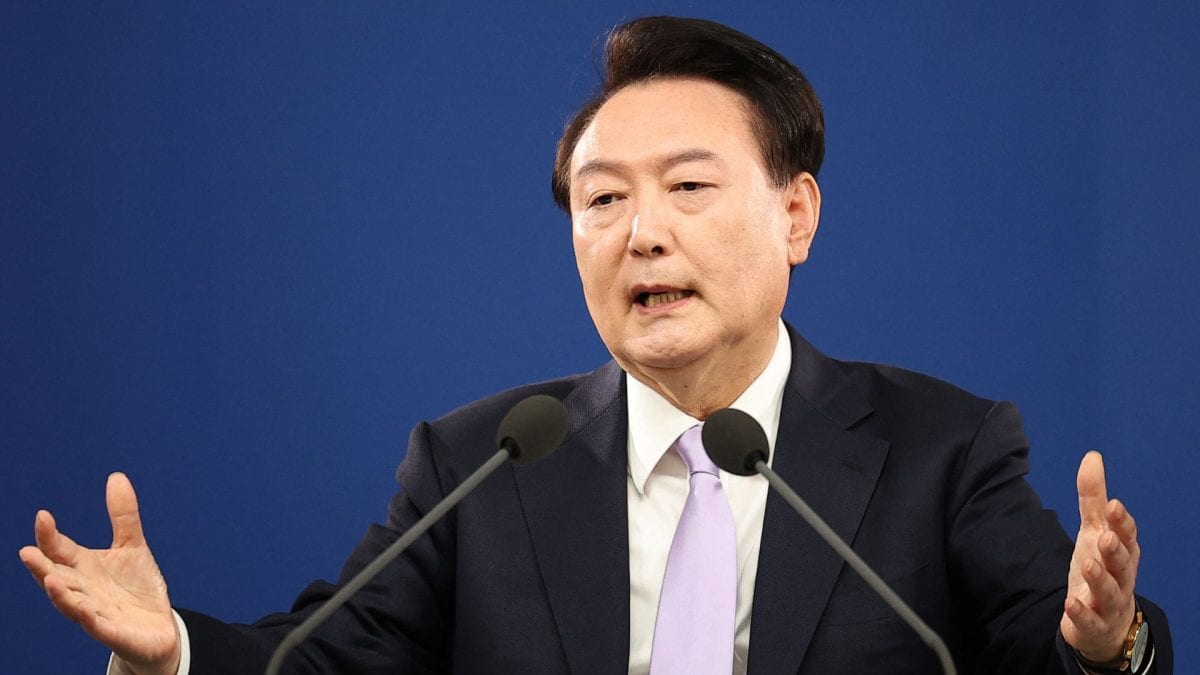Yoon is accused of conspiring to undermine South Korea’s constitutional order. Yoon argued that the martial law declaration was not a “failed martial law”, but rather one that “ended a bit sooner” than he expectedread more
Impeached South Korean President Yoon Suk Yeol appeared in court Thursday (January 23) to present his defence against charges related to his controversial declaration of martial law.
While Yoon insisted his actions were misinterpreted, investigators pushed for him to be charged with insurrection and abuse of power after concluding a 51-day probe into the incident.
Courtroom defence amid mounting accusations
Yoon, who is currently suspended from his duties, argued before the Constitutional Court that he didn’t believe his short-lived December 3 martial law declaration was a “failed martial law”, but rather one that “ended a bit sooner” than he expected.
During the session, Yoon directly questioned former Defence Minister Kim Yong-hyun, who resigned following the fallout. Kim testified that Yoon reluctantly approved the martial law, claiming, “The president wasn’t as meticulous as usual.”
“As far as I recall, on the night of December 1 or 2, you brought the proclamation to the residence,” Yoon said, adding that in reviewing the draft declaration, he saw many legal flaws.
Yoon also asked Kim if he remembered the situation “where we laughed as I said, let’s just leave it (the martial law) as it is since it is not feasible”.
Critics questioned Yoon’s direct confrontation of witnesses, with lawmaker Choi Ki-sang calling it a tactic to “influence testimonies or create psychological pressure.”
The Constitutional Court is now weighing whether to formally remove Yoon from office. A ruling in favour of impeachment would force South Korea to hold a presidential election within 60 days.
Insurrection and abuse of power allegations
As Yoon defended his case in court, the Corruption Investigation Office (CIO) handed prosecutors a report recommending he face criminal charges. The CIO accused Yoon of conspiring with his former defence minister and military commanders to undermine South Korea’s constitutional order.
“Yoon declared martial law with the intent to exclude state authority or disrupt the constitutional order, thereby inciting riots,” Corruption Investigation Office (CIO) Deputy Chief Lee Jae-seung said.
Investigators alleged that Yoon ordered troops to storm the National Assembly and prevent lawmakers from voting down his decree. The martial law lasted just six hours before being struck down by lawmakers, who later impeached Yoon and suspended him from duties.
The CIO also alleged that Yoon “abused his authority by compelling police officers from the National Assembly Guard Unit and martial law forces to perform duties beyond their obligations.”
Uncooperative stance
Yoon was arrested last week in a dawn raid, becoming the first sitting South Korean president detained in a criminal probe. Since his arrest, he has refused questioning.
Yoon’s security detail also “obstructed searches and seizures, including access to secure communication devices like classified phones,” Lee said.
Given his uncooperative stance, investigators have decided it would be “more efficient” for prosecutors to handle the case. Prosecutors now have 11 days to decide whether to formally charge Yoon, which would lead to a criminal trial.
With inputs from agencies
